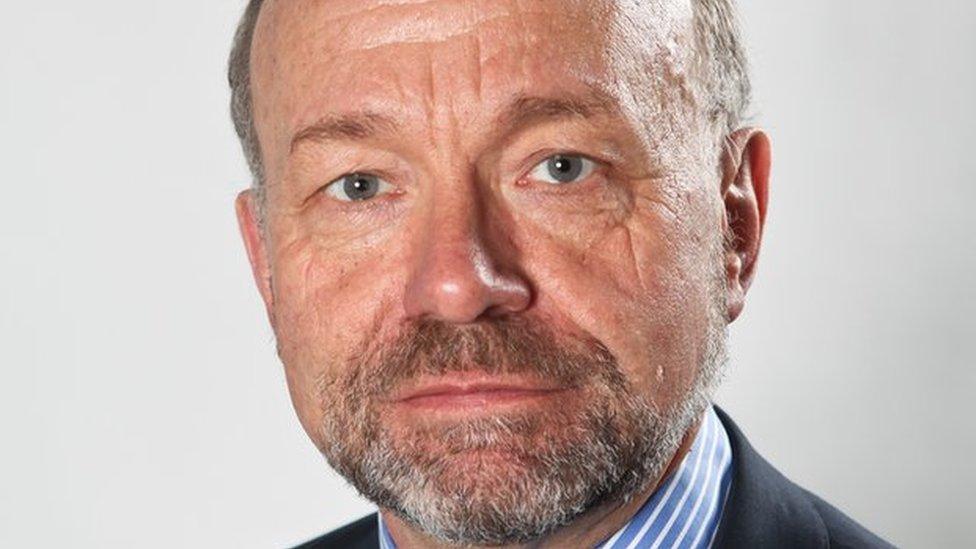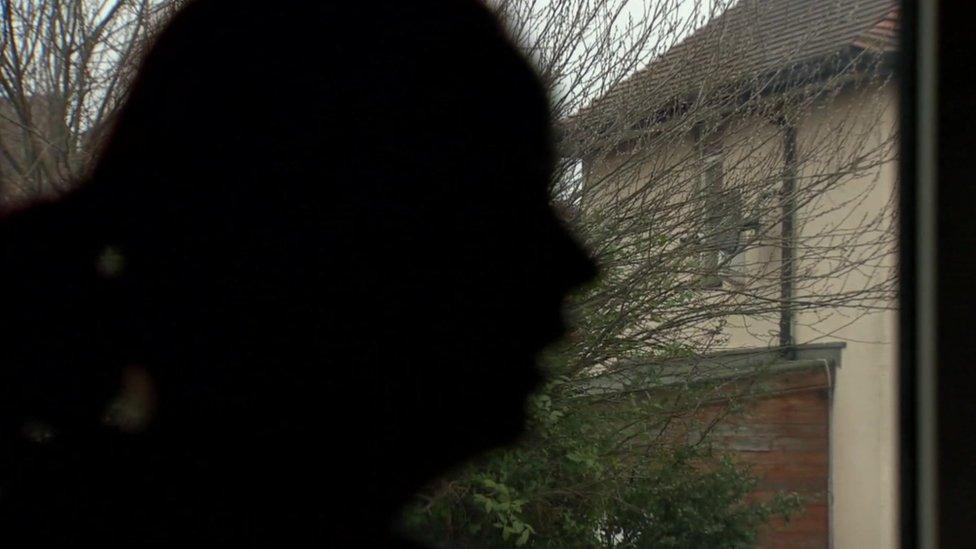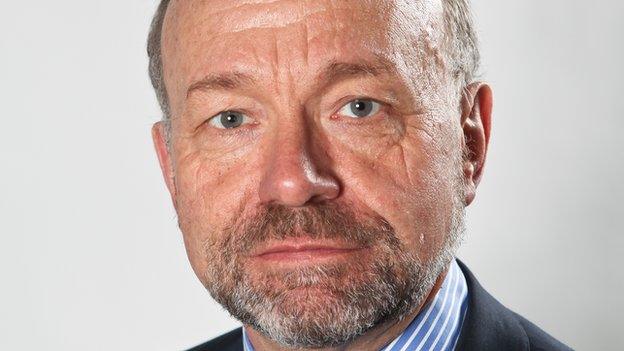Drew Review: South Yorkshire Police's handling of abuse was 'inadequate'
- Published
"They'd say 'come and stay at my place', and then before you knew it, there would be other people there"
South Yorkshire Police's handling of child sexual exploitation (CSE) was "inadequate" and the force "regularly missed" opportunities to tackle the problem, a report has found.
The force "seriously under-resourced" its early work and several attempts to alert senior officers to the issue fell on "deaf ears", it says.
It does however say the force has since made "considerable progress".
South Yorkshire Police said tackling CSE was an "absolute priority".
South Yorkshire Police 'did not care', says abuse victim
The report, by Professor John Drew who is a former chief executive of the Youth Justice Board, was commissioned by South Yorkshire's Police and Crime Commissioner Dr Alan Billings and covers the period from 1997 to 2016.
It was commissioned in the wake of the Jay Report, external, which found at least 1,400 girls were abused in Rotherham between 1997 and 2013.
Prof Drew's 107-page report makes 11 recommendations, including implementing a standardised procedure for investigating CSE and ensuring that intelligence is handled promptly and appropriately.
"My overall judgement is that the police response to safeguarding children and young people from child sexual exploitation in the past was inadequate, especially in Rotherham.
"Some, but only some, of this failure can be linked to the lack of awareness, nationwide, of child sexual exploitation in the early 2000s.
"Opportunities to explore the prevalence of sexual exploitation in more detail regularly presented themselves and were regularly missed."
The report found "serious failings of policing in Rotherham" and said that while improvements were made from 2007 onwards "significant failures" continued to occur.
In Sheffield, it found officers worked in an "under-resourced vacuum" and requests for further resources and attempts to explain the situation were ignored.

Professor John Drew's report investigates South Yorkshire Police's handling of child sexual exploitation from 1997 to the present
Prof Drew said senior officers working at the time had told him they were "not aware" of the requests.
"A generous interpretation of this situation would be to say that the senior command lacked professional curiosity and were focused instead on other areas of police performance."

Analysis
Michael Buchanan, BBC Social Affairs Correspondent
This report gives us a damning insight into why South Yorkshire Police failed repeatedly to act on the intelligence pouring into force.
The callous attitude that senior officers displayed towards the young victims is extraordinary.
Faced with allegations that children were being drugged, raped, abused and trafficked, they decided to do nothing.
What today's report describes as "a lack of professional curiosity" was more simply put to me by one former officer as "they ignored it."
The police - probably many members of the public - would like to move on from the failures of the past. But despite all the reports and reviews that have taken place since 2013, not a single officer has been held to account.
That is mainly due to the glacial pace of the IPCC investigation. Yes, there are numerous complaints against dozens of officers, so it's complicated.
But there is no sign of a conclusion to their inquiries and as this report highlights, that lack of resolution continues to undermine public confidence in the force.

He says the "distorting impact" of national priorities on targeting crimes such as burglary, robbery, and theft from vehicles meant it was "well nigh impossible for local police forces to attach importance to other emerging crimes".
However, he said that South Yorkshire Police's response to safeguarding children and young people from CSE was now "adequate".
The force was now "led by individuals who were determined to learn from the past" and that "significant additional resources" had been allocated to "catching up from a previously poor position".
The report also found the force now "understood and acted on previous criticisms and recommendations" though its Action Plan for combating CSE could be "further improved".
'Slow pace'
Prof Drew also uses his report to criticise the "slow pace" of the Independent Police Complaints Commission's investigations into disciplinary matters which, he said, are not due to be completed before 2017 "at the earliest".
"I cannot emphasise too strongly the harmful impact that this is having on victims and survivors, on police officers and staff, and on public confidence in policing," he said.
The force's Chief Constable David Crompton said: "Since the Jay report we've heavily focused our resources on this issue and charged 124 people with offences related to child sexual exploitation.
"We note the report's recommendations and accept that there is more to be done. Alongside the Police and Crime Commissioner, our partner agencies and forces across the country we will identify best practise and continue our commitment to protect children from sexual exploitation and harm."
The Independent Police Complaints Commission (IPCC) revealed it has 55 ongoing investigations linked to at least 66 officers in South Yorkshire and their handling of CSE in Rotherham. It has also revealed it has received more than 100 allegations linked to officers who have not yet been identified.
A spokesperson for the IPCC last month said it was "committed to ensuring the allegations are investigated sensitively and thoroughly".
In response to Prof Drew's comments, the IPCC said it would be analysing the report "to see if it identifies any matters that we are not already aware of and which may require investigation."
The IPCC said it had a team of 21 investigative staff were now working on Rotherham-related cases. A newly-appointed Director of Major Investigations would ensure the resources allocated to these inquiries remained under review, it added.
- Published23 March 2016

- Published23 March 2016

- Published10 June 2015

- Published26 August 2014
